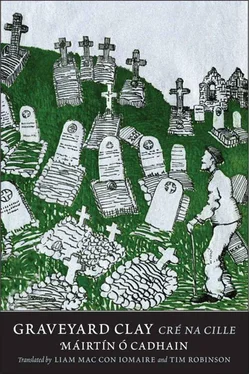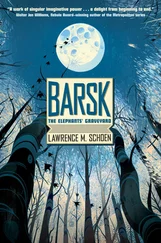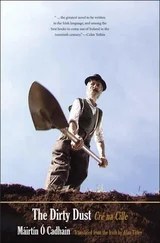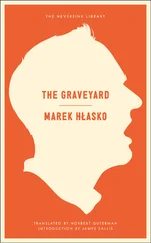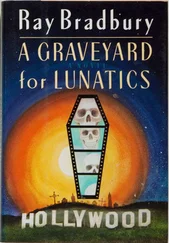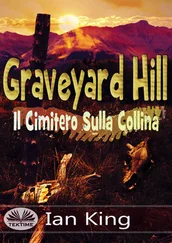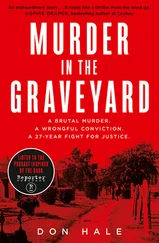“I’ll have the law on you,” says she. “You have no right to accost a woman in a lonely place like this. I’ll swear on oath against you. You’ll be transported …”
— You talking about stealing, Road-End Man, and you’d steal the honey from the hive. You sold every sod of your own turf. Not a sod to call your own from All Saints’ Day and still you had a roaring fire in the kitchen, and in the parlour, and in the rooms upstairs … I was visiting in your house one night. I recognised the turf I’d brought from the bog myself the day before. “Upon my soul, as you say, there’s neither fire nor flame in that turf,” says you. “It should be better than that … the best sods have all been stolen from us …”
— You’re talking about stealing, and you’d steal the shroud off a corpse. You stole the drift-weed 7I collected from off the island. “Since we can’t bring all this ashore on our backs or with the horse,” says I to the wife, “we’d better tie strings 8to the stems to show that we’ve claimed it. It wouldn’t cost this crowd up at Road-End a thought to take it tomorrow morning when the tide casts it up.”
“Surely to God they wouldn’t go stealing drift-weed,” says the wife.
“God grant you sense,” said I. “If you had it spread out on your own field they’d take it, never mind anywhere else.”
The next morning on my way from the top of the village I met your daughter in the Deep Hollow, and she had a load of seaweed on her donkey.
— Oh, that temptress my eldest son is keeping company with!
— I recognised my drift-weed immediately, even though some of the strings were taken off the stems. “In Colm’s Cove you collected that,” I said.
“In the Middle Cove,” said she.
“Indeed it was not,” said I, “but in Colm’s Cove. Seaweed from the island would never come into the Middle Cove with the wind due south and a springtide running. That’s my seaweed. If you have any scruples you’ll lay down that load and let me have it …”
“I’ll have the law on you for attacking me like this in a lonely place,” she said. “I’ll swear on oath against you. You’ll be transported …”
— You stole my little lump-hammer. I saw you with it when you were building the back kitchen …
— You stole my sickle …
— You stole the rope I left outside …
— You stole the scallops 9I left ready pointed in the barn after my two days’ hard work cutting them in Banishment Wood … I knew my own two notches on each scallop …
— Faith then, a small heap of periwinkles was stolen from me. I had them in bags at the top of the boreen. “Faith then,” says I to the young lad, “if we gather that much every week till next November we’ll have the best part of the price of a colt.” There were seven fine fat bagfuls of them. The next morning I went down to meet the Periwinkle Man. He looked at them. “This bag is a couple of stone short,” says he. He was right. It had been opened and a couple of stone stolen out of it the night before. It’s best to tell the truth: I had my doubts about Caitríona Pháidín …
— Ababúna! …
— I did indeed. She had a great liking for periwinkles. I’ve heard people say they’re great for the heart. But I didn’t know at the time that I had a bad heart, God help us! But I wrenched my …
— You old sourpuss! Don’t believe him …
— Listen, Seáinín Liam, usen’t I see my own father. The poor man, he’d drink tea at all hours of the day. The devil a penny of his pension I ever saw in the house, Seáinín, nor did I know where he put it. But there was plenty of tea to be had at the time, and he used to buy a pound and a half or two pounds of it every Friday. Siúán the Shop told me he often bought as much as two and a half pounds. “Might as well enjoy it while it lasts,” he always used to say, the poor man.
Every Friday Caitríona would lie in wait for him on his way home, and she’d spirit him into her house. He was easily led like that, the poor man. “You’ll have a cup of tea,” she’d say.
“Indeed I will,” he’d say. “There’s two pounds of it there. Might as well enjoy it while it lasts.”
He’d go over the whole story again and again at home with me. He was simple like that, the poor man. So the tea was made. And tea was made twice, maybe. But no more than a half pound of all that tea was ever brought home to me. May God forbid that I’d tell a lie about him, Seáinín! …
“I bought two pounds,” he’d always say. “Unless I lost it! See if there’s any hole in them pockets. Maybe I left some of it behind me in Caitríona Pháidín’s. I’ll get it the next day. And even if I don’t, what harm? Might as well enjoy it while it lasts. Caitríona’s household can knock back an awful amount of tea, God bless them! …” He was simple like that, the poor man …
— That’s a damned lie, you slut! Didn’t he have me robbed trying to keep him in tea! Running over to my house at every stroke of a clock or watch, because you had him poisoned, Bríd Terry, with your spotty potatoes and salt-water dip, you beggarwoman you. Don’t believe her …
— Peace and quiet is all I want! Peace and quiet! Spare me the lash of your tongue, Caitríona. I don’t deserve all your snarling. Peace and quiet! Peace and quiet!
— I’ll tell you the truth now, Bríd Terry. We had the Rape Field sown the same year and we had heaps of old potatoes left. It was out towards the end of May. Micil and myself were on the bog every day that dawned for the previous two weeks. We’d have been there that particular day too only for Micil was bringing up a lock of dry seaweed from the shore until dinner-time. He went into the barn after his dinner to get an armful of straw to put in the donkey’s straddle, since he was going to spend the rest of the day on the bog. “You’d think, Cite,” he says, “the heap of old potatoes out there in the barn wouldn’t have gone down so much. I wouldn’t mind but the pigs have been sold for the past two weeks.”
“Faith then, Micil,” says I, “I didn’t set right foot or left in that barn for the past three weeks. I had no call to. The children bring in the potatoes for the meal.”
“We should have kept it locked since we started going to the bog,” says he. “Anybody could get in there during the day, when we’re not at home and the children are at school.”
“They could indeed, Micil, or during the night,” says I.
“It’s shutting the stable door after the horse has bolted,” says Micil.
Out I went myself to the barn on the spur of the moment, Bríd. I looked at the potatoes.
“Faith then, Micil,” says I when I came in. “It’s shutting the stable door after the horse has bolted, right enough. There was a fine heap of potatoes there two weeks ago, but it’s shrunk to nothing now. There’s not near enough left to keep us going till the new potatoes. Would you have any clue, Micil, who’s stealing them?”
“I’ll go to the bog,” says Micil. “Let you go up to Meadow Height, Cite, pretending you’re going to the bog like you do every day, and come down into the stony hollows at the back, and lie down and hide in the sallies.” 10
So I did that, Bríd. I lay down in the sallies, turning the heel on a stocking and keeping an eye out on the barn. I was a long time there, and I think I was on the verge of falling asleep when I heard a noise at the barn door. I jumped through the low gap in the wall. There she was, Bríd, and what you might call a fine hump of spuds on her back …
“You may as well take them with you and sell them to Siúán the Shop, as you did with your own all year,” says I. “You haven’t a potato to put in your mouth since May Day now. I wouldn’t mind one year, but that’s your carry-on every year.”
Читать дальше
